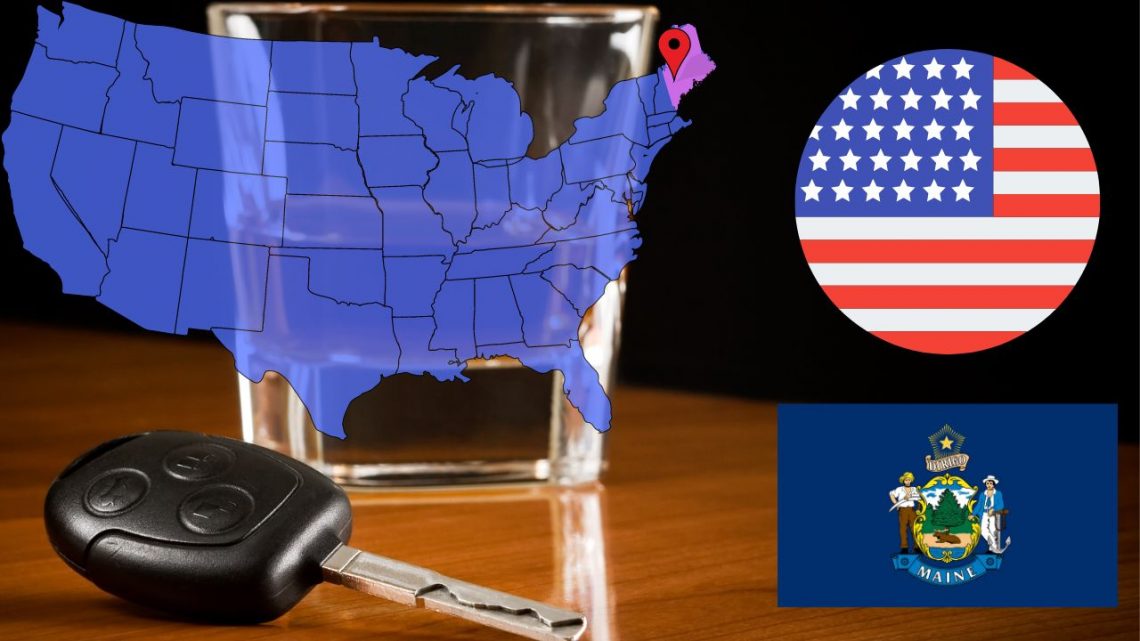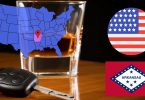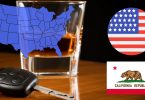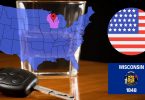In Maine, it’s considered a criminal offense to operate a vehicle with a blood alcohol content (BAC) of 0.08%—equivalent to 80 milligrams of alcohol per 100 milliliters of blood—or above, under the Operating Under the Influence (OUI) laws.
Please keep in mind that the purpose of this article is to educate readers on Maine’s impaired driving laws. This article is not meant to endorse or promote drunk driving in any way.
What is the legal alcohol limit for driving in Maine?
In Maine, the legal blood alcohol content (BAC) limits for driving vary based on the type of driver’s license and the driver’s age. These limits are set to enforce safe driving practices and minimize alcohol-related accidents on the road. Below are the specific BAC limits for each driver category:
- Regular Drivers: The legal limit is 0.08% BAC. This applies to most drivers operating personal vehicles.
- Commercial Drivers: Individuals holding a commercial driver’s license are subject to a lower limit of 0.04% BAC, reflecting the higher safety standards expected of professional drivers.
- Minors (Under 21): It is illegal for minors to drive with any detectable amount of alcohol in their system, enforcing a zero-tolerance policy to protect young drivers.
Drink and Drive Penalties and Punishments in Maine
In Maine, driving under the influence of alcohol or drugs (OUI) is taken very seriously, with strict penalties enforced to deter such behavior. If you’re caught driving with a blood alcohol content (BAC) of .08% or more, you’re guilty of OUI, a criminal offense that can lead to immediate license suspension based on police reports and BAC test results, even before a court appearance. For minors under 21, Maine’s Zero Tolerance Law applies, making it illegal to operate a vehicle with any detectable alcohol, resulting in severe license suspension penalties. The law also mandates automatic consent to chemical testing when probable cause exists, with refusal leading to immediate and potentially lengthy license suspension. Below are the minimum penalties that cannot be suspended:
A. First-time Offenders (within a 10-year period):
- Minimum fine of $500 ($600 for test refusal).
- License suspension for 150 days.
- Incarceration of at least 48 hours for specific aggravating factors, or 96 hours for test refusal.
B. Second-time Offenders (within a 10-year period):
- Minimum fine of $700 ($900 for test refusal).
- At least 7 days of incarceration (12 days for test refusal).
- License suspension for 3 years and a suspension of the right to register a motor vehicle.
C. Third-time Offenders (within a 10-year period), Class C crime:
- Minimum fine of $1,100 ($1,400 for test refusal).
- At least 30 days of incarceration (40 days for test refusal).
- License suspension for 6 years and a suspension of the right to register a motor vehicle.
D. Fourth-time Offenders (or more within a 10-year period), Class C crime:
- Minimum fine of $2,100 ($2,500 for test refusal).
- At least 6 months of incarceration (6 months and 20 days for test refusal).
- License suspension for 8 years and a suspension of the right to register a motor vehicle.
Additional Penalties:
- Vehicle seizure or forfeiture for driving under the influence while under suspension for a previous OUI.
- Significant other consequences including a criminal record, high financial costs, and the emotional burden of causing harm.
Minimum Court Imposed Penalties for OUI:
- Varying durations of license suspension, jail time, and fines based on the number of offenses and presence of aggravating factors.
Important to Note:
- All drivers involved in fatal crashes must undergo a BAC test, with failure resulting in a three-year license suspension.
- Convictions for vehicular homicide can lead to up to 30 years in prison and a permanent loss of driving privileges if alcohol is involved.
Given the complexity and severity of OUI penalties in Maine, it’s crucial for residents and visitors to stay informed about current laws and regulations. We strongly recommend regularly checking the official state website for the most up-to-date information on drink and drive penalties and punishments in Maine to ensure compliance and to make informed decisions about drinking and driving.
How Can I Calculate If My Alcohol Blood Limit Is Legal in Maine?
In Maine, law enforcement officials determine a driver’s blood alcohol content (BAC) through chemical testing, using either a breath test or a blood test. These tests are considered the most direct and reliable methods for measuring BAC and determining whether an individual is operating under the influence (OUI). It’s important for drivers to understand their own limits and ensure they remain within legal thresholds to avoid OUI charges.
As an experienced phlebologist with a decade of experience, I recommend two methods for estimating your BAC, which can help you make informed decisions about driving after consuming alcohol:
- Use a High-Quality Alcohol Breathalyzer:
- For those looking to monitor their BAC levels, I highly recommend the BACtrack S80 breathalyzer. It’s recognized for its professional-grade accuracy and has been approved by the DOT & NHTSA, as well as being FDA 510(k) cleared. Keeping a device like the BACtrack S80 in your car can be a practical way to assess your ability to drive, especially since it’s challenging for many to accurately judge their own BAC levels. This tool can serve as a preventive measure, helping to avoid impaired driving by providing a clear indication when you’re approaching or exceeding Maine’s legal limit of 0.08%.
- Use a BAC Calculator:
- In collaboration with other phlebologists and web developers, I’ve developed an online BAC calculator designed to estimate your BAC based on various factors, including the amount of alcohol consumed, the period over which it was consumed, your weight, and your gender. While this tool can offer a helpful estimate, it’s important to remember that individual variations in metabolism, food intake, and other factors can influence your actual BAC. Therefore, like the breathalyzer, this calculator should be used as a guide rather than an absolute measure.
Key Considerations:
While both the high-quality alcohol breathalyzer and the online BAC calculator are valuable resources for assessing your BAC, it’s crucial to remember that they may not provide 100% accurate results. Factors such as calibration of the device, individual metabolic rates, and the accuracy of the input data for the calculator can affect the results. However, these tools can still play a significant role in preventing drunk driving by giving you a better understanding of your BAC level and potentially stopping you from driving when over the legal limit.
It’s always best to err on the side of caution. If there’s any doubt about your sobriety, consider alternative transportation options. The goal is to ensure that you and others on the road remain safe.
Ways to Avoid Driving with a High BAC in Maine
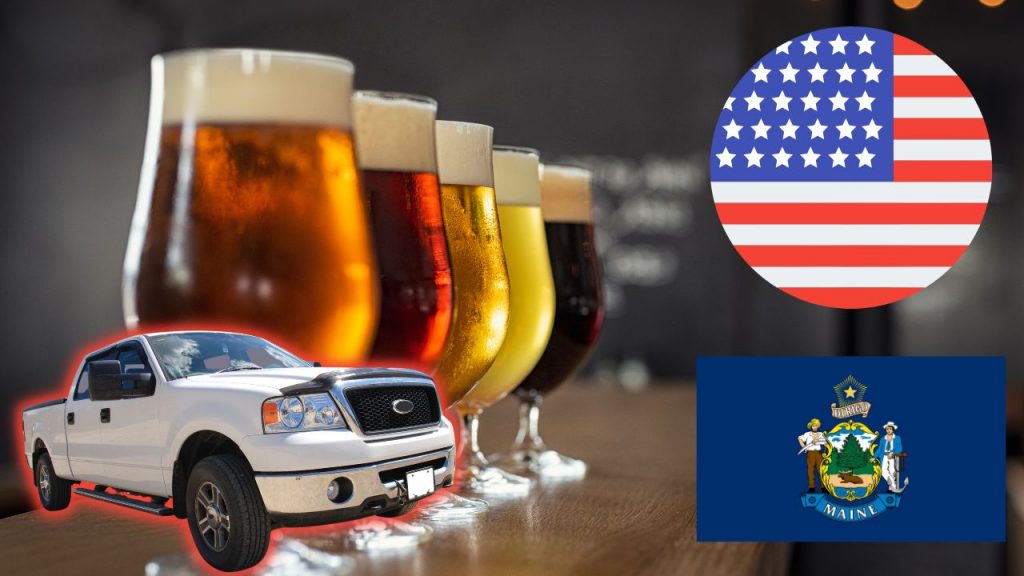
Driving with a high blood alcohol content (BAC) not only puts you and others at risk but also carries significant legal consequences in Maine. Fortunately, there are convenient alternatives to driving under the influence that can help you enjoy your outings responsibly:
- Use Ride-Sharing Apps or Local Taxi Services:
- Modern technology offers an easy and accessible way to find a ride home without taking the wheel yourself. Ride-sharing apps like Uber and Lyft provide a quick and user-friendly option to get you home safely. Additionally, supporting local taxi companies is another great way to travel safely without driving. In Portland, consider using services like Portland Cab Airport LLC for reliable transportation. If you’re in Lewiston, MaIn TaXi SeRvIcE offers a dependable option for getting around without risking driving after drinking.
- Order a Designated Driver Service:
- If you find yourself in a situation where you’ve driven to a location and consumed alcohol, and you’re concerned about leaving your car behind, a designated driver service is a perfect solution. These services provide a driver to take you and your car home safely. In Portland, Jetport City Cab Shuttle Service 24/7 is an excellent choice for such services. For those in Lewiston, Roy’s Driver & Rider Education offers similar services. Simply searching for “designated driver service” along with your city name on Google can lead you to local options that ensure both you and your vehicle arrive home safely.
Additional Tips:
- Plan Ahead: Before heading out, decide on your transportation plan in advance. This will help avoid making impaired decisions later.
- Host Responsibility: If you’re hosting an event, consider providing information or arranging transportation for your guests to ensure everyone has a safe way home.
- Public Transportation: Don’t forget about public transportation options, which can be a cost-effective and safe alternative to driving.
By taking advantage of these alternatives, you can enjoy Maine’s vibrant nightlife and social scene without the risk of driving with a high BAC. Not only do these options help keep you and others safe, but they also allow you to fully enjoy your time out without worrying about the consequences of driving under the influence.
Sticking to OUI Laws in Maine: Sad Statistics
Driving under the influence of alcohol or drugs is illegal in Maine, with strict DUI laws enforced to prevent such behavior. In 2020, 164 fatal car accidents in Maine involved drunk drivers, with 39% of these accidents featuring drivers with BAC levels above 0.08%.
It’s crucial to monitor your blood alcohol level to stay below the legal limit before driving. Using a breathalyzer can help ensure your BAC is within legal bounds. Alternatives to driving include hiring a designated driver, using ride-sharing services like Uber, or calling a local cab.
Misconceptions about alcohol’s effect on driving abilities persist; however, impairment begins immediately after consumption, affecting your ability to drive safely. Therefore, it’s recommended to avoid driving after drinking. If driving is unavoidable, confirm your BAC is under the legal limit and your driving capability is unimpaired.
Stay informed about Maine’s DUI laws and safe driving practices by visiting the Department of Public Safety’s official website.

